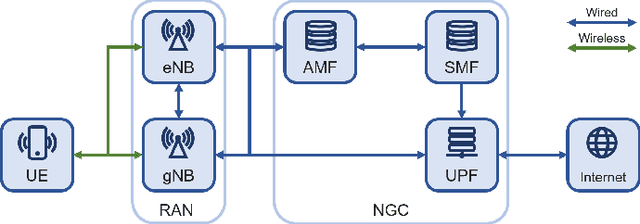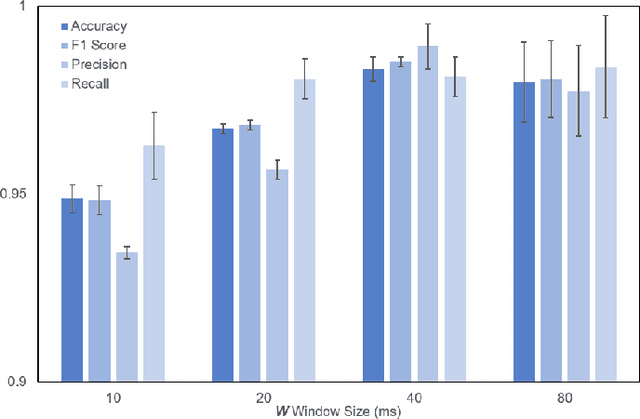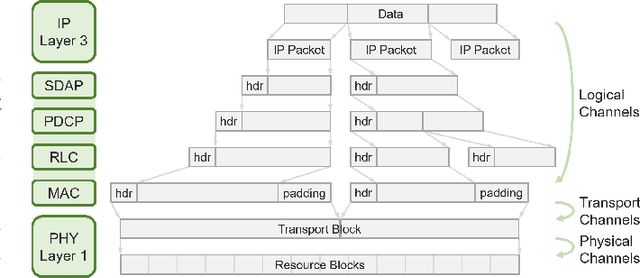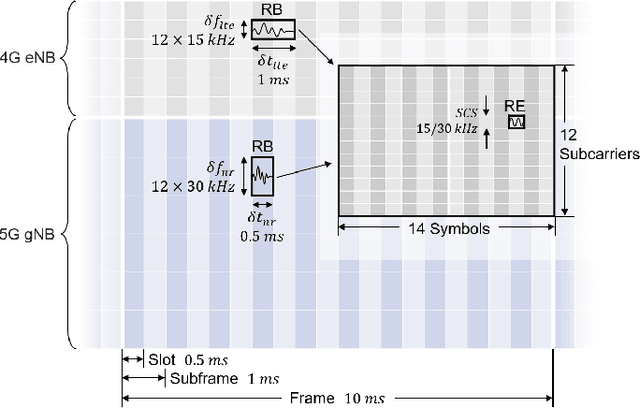Real-time Traffic Classification for 5G NSA Encrypted Data Flows With Physical Channel Records
Paper and Code
Jul 15, 2023



The classification of fifth-generation New-Radio (5G-NR) mobile network traffic is an emerging topic in the field of telecommunications. It can be utilized for quality of service (QoS) management and dynamic resource allocation. However, traditional approaches such as Deep Packet Inspection (DPI) can not be directly applied to encrypted data flows. Therefore, new real-time encrypted traffic classification algorithms need to be investigated to handle dynamic transmission. In this study, we examine the real-time encrypted 5G Non-Standalone (NSA) application-level traffic classification using physical channel records. Due to the vastness of their features, decision-tree-based gradient boosting algorithms are a viable approach for classification. We generate a noise-limited 5G NSA trace dataset with traffic from multiple applications. We develop a new pipeline to convert sequences of physical channel records into numerical vectors. A set of machine learning models are tested, and we propose our solution based on Light Gradient Boosting Machine (LGBM) due to its advantages in fast parallel training and low computational burden in practical scenarios. Our experiments demonstrate that our algorithm can achieve 95% accuracy on the classification task with a state-of-the-art response time as quick as 10ms.
 Add to Chrome
Add to Chrome Add to Firefox
Add to Firefox Add to Edge
Add to Edge